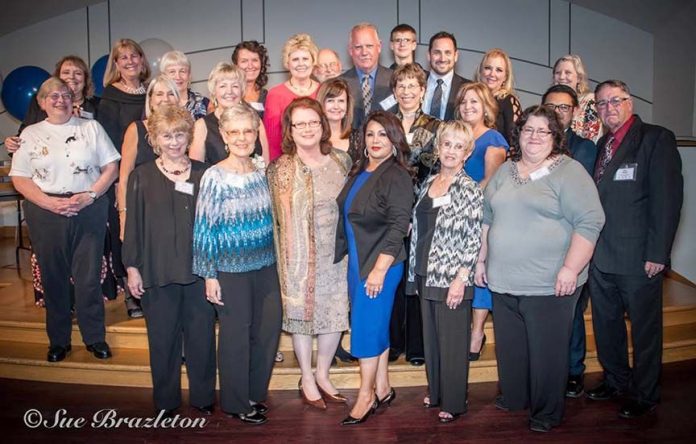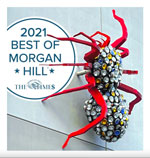
The Morgan Hill Community Foundation has established a relief fund for residents and small business owners afflicted by sudden disaster or emergency events, and the first recipients will be those who are financially impacted by the Covid-19 public health crisis.
The fund, known as the Community Disaster Relief Fund, will provide a central collection point at MHCF to quickly mobilize donations and distribute funds and other relief to local nonprofit organizations that provide aid in response to disasters, according to MHCF board members. To kickstart the fund, MHCF has committed a $10,000 contribution from reserve funds and donations from its board members.
“Our primary goal with the Disaster Relief Fund is to accelerate additional financial support to local nonprofits, aiding their efforts to both mobilize and extend services to our community in times of greatest need,” said Nick Gaich, President of MHCF. “We feel that (MHCF) can best serve our community as a central destination point in times of major disasters knowing that the human spirit and generosity of our community will provide us with the foundation to offer Disaster Relief Grants that will hopefully have a lasting and direct impact for those that are most vulnerable. We are hopeful that people will consider supporting this fund as a way to help others who are impacted by disaster in our community.”
In the long-term, funds from the Community Disaster Relief Fund will be distributed in response to any declared disaster or emergency that results in damage, loss or destruction to people or property in the greater Morgan Hill area. In the short-term, the first qualifying disaster is the coronavirus pandemic, which has “assaulted our community with illness, death, loss and business loss and shutdowns,” reads a press release from the MHCF Board of Directors.
“Funds will be allocated based on qualifying community benefit, priority of need, ability to impact the need, availability of funds, and related criteria set by the MHCF board,” reads the press release.
A community advisory committee will help determine what nonprofits will qualify for the funds. The committee will be made up of a cross-section of community members and local leaders, according to MHCF. The foundation will consider applications from local non-profit organizations for grants for services, goods or other forms of relief.
The Community Disaster Relief Fund was borne out of discussions among local community leaders and their desire to commit local resources to Morgan Hill residents and businesses who are struggling due to the Covid-19 pandemic and resulting shutdown of broad sectors of the economy.
Morgan Hill Mayor Pro Tem Yvonne Martinez Beltran said in the initial days of the ongoing shelter-in-place orders, she noticed that similar emergency funds established by larger organizations had quickly dried up. By mid-March, Martinez Beltran had been contacted by local residents—suddenly out of work because their employers had to close or cut back—who were worried about paying their residential rent for April.
She and other council members tried to pass a local eviction moratorium before the county supervisors enacted such a program that applies to all 15 cities in Santa Clara County.
Then when a rental assistance fund established by Sacred Heart raised $11 million for affected residents throughout the county, the need was so great that these funds were depleted within three days. Martinez Beltran said that was when it became clear to her that a local fund was needed, especially with City Hall’s limited resources available to help.
Martinez Beltran then began contacting area cities, community foundations and business organizations to identify local non-profits that specialize in rental assistance and micro-lending. The MHCF board “ran with the idea” and agreed to host the local disaster relief fund.
“I hope 90 percent of the fund will aid our most vulnerable, including people without a financial safety net or family to lean on, who don’t qualify for assistance, and anyone who needs it to help children, families, and individuals from becoming homeless, and 10 percent will assist small businesses that don’t qualify (or) haven’t received assistance,” Martinez Beltran said.
Examples of nonprofits that provide the kind of services that are eligible for the new MHCF fund include St. Catherine Church and CARAS, both of which provide rental assistance, Martinez Beltran added.
Morgan Hill Chamber of Commerce CEO Brittney Sherman was one of the community leaders initially contacted by the mayor pro tem. Gaich—who owns Craft Roots restaurant in downtown Morgan Hill with his family—and other MHCF board members quickly joined the conversation and the local disaster fund became a reality.
“All the heavy lifting has been done by Nick Gaich and MHCF,” said Sherman, who has agreed to sit on the community disaster relief fund’s advisory committee.
MHCF board member Matt Wendt added that some examples of uses of the community disaster relief fund include meals for homebound seniors; medical or other necessary supplies; emergency rent, mortgage or daily living expenses; food, clothing or other essential supplies for those suffering financial hardship due to the pandemic; loans to small businesses; services for victims of domestic or family violence; and service-related needs for the disabled. All funds will be distributed to local nonprofits that provide such services.
And while the state of California and local communities are starting to reopen commerce, Martinez Beltran said the need for disaster relief related to the pandemic will exist for a long time.
“Some business owners have told me they’re down (in sales) by 50 to 80 percent,” Martinez Beltran said. “I don’t know if everybody realizes, we will not come out of this looking the same as we did (before the pandemic). People understand that businesses are struggling, but I don’t think people really grasp that it will look different. Not all of these businesses are going to make it.”







